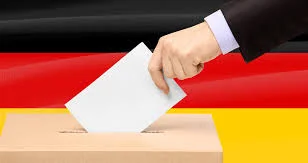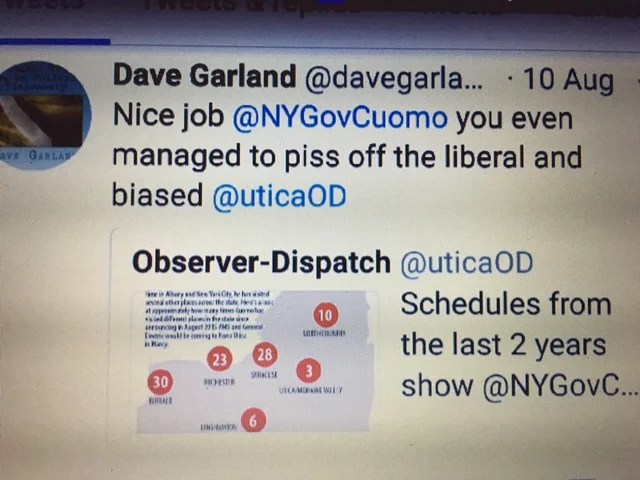There’s an Election for That: Smaller Parties in Germany By Richard R. Moeller
Smaller political parties have a greater chance of advancing policies in Germany than in many other states. Moreover, unlike France and the United States, the German parliamentary system provides for significant involvement by smaller parties. Notably, these smaller parties cannot be simply small because, in Germany, there are limitations on the small (as opposed to smaller) parties.
Indeed, there is a distinction. For example, Bundestag (parliament) voting calls for one vote designed for a person based on constituency, plus another vote for party which is, for all intents and purposes, a national survey of German parties. Unless a constitutional limitation is placed on a particular party by the courts, and this is rare, Bundestag representation is guaranteed by a five per cent or larger second ballot, through this partisan national survey. Please note that this article deals with the genuine power in Germany, the Bundestag. In the interest of brevity, the Bundesrat, local parliaments and the European Parliament must, therefore, be overlooked- for now. Of the 598 Bundestag seats, 299 (exactly half) are distributed by the second vote of each citizen.
With this in mind, the field of smaller German parties shrinks to a handful. Still, party participation is relatively uninhibited for many that have relative support. Many of these smaller parties have regional backing; however, as political spillover occurs, smaller parties can successfully spread their support to all states (Länder) and meet the proportional hurdle.
As one looks towards the election on the 24th of September, four parties are hoping to capitalize. Despite the polls affirming that the CDU/CSU (Merkel, et al.) will take the grand prize, four parties will attempt to seize on the changing climate and the realization that the lack of enthusiasm for the SPD (second party) might leave a “seats vacuum” in the Bundestag which they see themselves filling. Each of these four has different reasons to hope as they confidently recognize in 2017, “there’s an election for that.” There’s a compelling expectation now for all four that is unlike elections in the past.
The Greens (Die Grünen) Green
The environmental party of the Greens will likely acquire votes from the SPD as well as other left-leaning citizens unhappy with the vague and often ambiguous of leaders like Martin Schulz (SPD) and even the Chancellor herself. This becomes a double-edged sword hurting possible Left-Center cooperation. The Green party leader, Simone Peter announced that “politicians such as Chancellor Angela Merkel only offer headlines but lack the courage for real change.”
It is true that climate change policies do not solely define the Greens, but with the acceptance of the concept throughout Germany, the hopes associated with this inclination gives its members confidence that voters will believe that only the Greens can faithfully deal with climate change and similar transnational issues.
The SPD’s Schulz has been dubbed as the German Bernie Sanders who would like to raise taxes on the rich – a negative position. Simone Peter calls for a better environment – a positive position. Schulz wants Germany to use much of its budget surplus for spending on bolstering the European Union. So do the Greens. Schulz also wants the US to remove nuclear weapons from German territory.
The Greens maintain these policies as well and with more intensity than run-of-the-mill SPD leaders. Yet, getting CDU voters to focus on green issues is more difficult. Angela Merkel is not as popular as she once was. Sometimes you still hear her referred to as Mutti (Mommy), but not as much. Like many nicknames, it’s become sarcastic fodder for her political enemies.
Merkel is flanked on the Left with a few parties that would like to form government without her like the Greens. But, they would have to work together if it comes to that. Moreover, scholars have noted that as terrorism concerns increase, environmental concerns become mollified. Recently, the Greens stated they would not consider the FDP for a coalition partner. If that’s really true, then any type of governing would be nearly impossible mathematically and would, once again, relegate them to protest party.
The Left (Die Linke) Red/Purple
After reunification, the Left Party began, in many ways, as a protest party disappointed by tame leftist policy of the center two parties (CDU and SPD). The Left was, at first, a party dedicated to the Eastern part of Germany during the frustrating decade of the 1990s. Today, the thought that frustration with these traditional positions coupled with the rise of the Right (AfD) will catapult their numbers.
For The Left, the result on the 24th might put them into contention to form a government as part of a collation. If truth be told, this coalition would involve the SPD more than the CDU, and that would spread Leftist voters thin. Yet however they get there, having a seat at the governmental table would please them greatly. Cornelia Hildebrandt in a journal article about the German Left Party notes that Eastern Germany has never been monolithic regarding policy or party.
Notably, a strong ideological divide surrounds those who desire a new type of populism whether on the Left or Right. The Left will most likely acquire new votes in the western part of the country. It also foresees a growth in Eastern Germany as the policies of the AfD seem to have become isolated with young men in that region.
The Left has been able to use comedy to tease the SPD candidate Martin Schulz highlighting that Macron's “youthful stardust” is not at all part of Schulz’s appeal. He’s 61 and not youthful like he was when he sought a football career in the mid-70s the critique goes. He’s best well-known outside of Germany for his loathing of Brexit and ill-tempered exchanges with Nigel Farage. The Left wants aggressive social policies with a hint of populism. Center parties, to them, care too much about holding on to power.
The Free Democrats - FDP (Freie Demokratische Partei) Yellow
The FDP or “liberals” (classical) see the elections on the 24th as tangible and theoretical political redemption. In 2013, they failed to meet the five per cent hurdle for the first time in history. With this disappointment, party chairman Philipp Rösler resigned and Christian Lindner took over and rebranded.
Many argued four years ago that the FDP was dead and buried; however, the polling today suggests the opposite. Since 1990, the FDP has only achieved seats through the second (party/color) avenue. Along the same lines, the frustration of citizens and business leaders who refuse to live in a world of constant fears about terrorism (and the lack of proper response or even blame) of the major parties gives the FDP a powerful, traditionalist base.
For the FDP, the 24th holds great promise. It’s not out of the question that the FDP may act as a power broker again. Additionally, the party’s new leader Christian Lindner is ready to do more. He has been compared to French President Emmanuel Macron. Lindner is young, but experienced. He sees the (once) overshadowing of the major parties as an asset. He wants to grab the sovereignty issue from the rightist Alternative for Germany (AfD) and civil liberties from the Left Party. To the political observer, the FDP window is opening.
Alternative for Germany – AfD (Alternative für Deutschland) Light Blue
Of all the parties seeking Bundestag representation, the AfD is the most controversial. They did much better than anticipated in the last Federal German election in 2013 with 4.7 per cent of the second vote casting discussed above. Still, like the FDP, they have something to prove. Länder election results, especially in the Eastern states of Germany have been as high as 23 per cent for the AfD of late.
The party is young and lacks focus. The AfD began in 2013 as a Eurosceptic party. It became a full Rightist party in 2015 with Merkel’s immigration openness as well as the takeover of the party by more conservative members. Remarkably, besides the veteran social conservative and official candidate Alexander Gauland, the AfD has a new face in Alice Weidel as his running mate. Weidel who is more moderate and business oriented, has some within the party thinking that she might be able to rein in the AfD.
With some curiosity, Weidel is a Rightist lesbian who is in a relationship with non-German Swiss film producer Sarah Bossard. Despite this, the AfD has shown a desire to move even further to the right from time to time especially on immigration. Perhaps the AfD should be considered a classic radical protest party. The Dutch and French elections might be behind that perception lately. But both new leaders Alexander Gauland and Alice Weidel have desires on winning. How many seats and what the partisan national vote reveals on the 25th will determine that.
Most followers of the election agree that if they cannot rise in September, they might lose support of those members wanting to govern in the future through a coalition. Both the CDU and the SPD (and the other smaller parties) swear to never cooperate with them politically, informally or in social situations.
In the end, the position of the four smaller parties in Germany has never been more promising. Each will analyze the numbers as the votes finalize. If any of these parties fail to meet the threshold required, their future becomes questionable.
The AfD has the best potential to gain. The FDP can realistically anticipate coalition invitations. The Greens will champion the environmental concerns of most Germans. The Left will most likely remain a protest party, but robust. Turnout will be high during this Federal election and that’s good for smaller parties overall.
Richard R. Moeller is an Associate Professor of Political Science at The Metropolitan State University of Denver.





